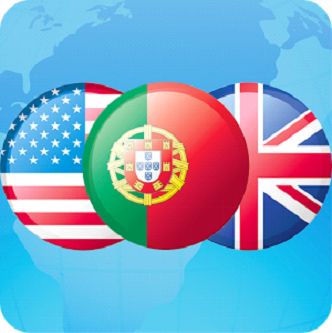Discover the Best Tools for English To Portuguese Translation Jobs
Discover the Best Tools for English To Portuguese Translation Jobs
Blog Article
Top Tips for Perfect English to Portuguese Translation Provider
Attaining phenomenal English to Portuguese translation needs more than mere word-for-word conversion; it demands an understanding of cultural subtleties and etymological intricacies. Choosing qualified translators who are both culturally mindful and fluent is paramount. Equally crucial is the technique of localization, which includes customizing material to local variants. In addition, using contextual references makes sure that the initial tone and significance are protected. The trip doesn't finish there; a strenuous review and editing process is necessary. What various other essential aspects should be taken into consideration to raise translation high quality even more?
Understand Cultural Nuances
When converting from English to Portuguese, understanding the cultural subtleties is necessary for generating a accurate and resonant text. The Portuguese-speaking globe varies, encompassing different areas, each with its distinct customs, idioms, and social standards. A translator has to be attuned to these nuances to make sure that the translation not just communicates the intended message however additionally reverberates with the target audience.
For instance, colloquial expressions in English might not have straight equivalents in Portuguese. A phrase that functions well in one society could cause confusion or misinterpretation in another. Understanding regional dialects and variants, such as those discovered in Brazil and Portugal, is crucial; words may hold various connotations or uses depending upon the area.
Additionally, cultural context plays a substantial role in translation. Consideration of historical, social, and political variables can affect language options and tone. This cultural awareness enables the adjustment of content that straightens with regional worths and assumptions, consequently boosting the performance of interaction. Ultimately, a detailed understanding of social subtleties is vital for supplying translations that are not just linguistically exact but additionally culturally relevant and appealing.
Pick Qualified Translators
Choosing qualified translators is an essential action in ensuring the precision and high quality of English to Portuguese translations. A translator's knowledge not just incorporates language proficiency yet also a deep understanding of cultural context, idiomatic expressions, and industry-specific terms. When selecting a translator, focus on those with formal training in translation researches or linguistics, along with pertinent certifications that show their professional capability.
Experience plays a crucial role too; translators focusing on details areas-- such as lawful, clinical, or technical-- are more most likely to supply specific translations customized to the sector's requirements (English To Portuguese Translation). Additionally, consider their portfolio and client reviews to assess their previous job top quality and dependability
Engage translators that are indigenous Portuguese audio speakers, as they have a natural understanding of the language's subtleties and local dialects. This experience boosts the translation's credibility and effectiveness.
Use Contextual Referrals

When translating, it is important to identify colloquial expressions and cultural recommendations that may not have direct matchings in Portuguese. Particular expressions that reverberate in English could need adjustment to share the same emotional weight or social significance in Portuguese. Employing contextual referrals can help translators select the right terms and style, thereby improving the total clarity and effect of the translation.

Concentrate On Localization
Localization plays an important function in the translation process from English to Portuguese, as it ensures that the converted content is relevant and culturally suitable to the target market. English To Portuguese Translation. This process goes past simple translation; it includes adjusting the material to the social, social, and linguistic nuances particular to Portuguese-speaking regions
Comprehending local expressions, personalizeds, and choices is crucial. Certain expressions or references that reverberate Home Page with an English-speaking audience may not have the exact same influence on Portuguese audio speakers. It is important to consider regional variations, such as Brazilian Portuguese versus European Portuguese, as each has distinct vocabulary and stylistic distinctions.
Additionally, localization incorporates formatting, such as day and time formats, money, and dimension units, which can differ significantly across societies. This focus to information fosters a connection with the target market, boosting interaction and understanding.
Furthermore, employing regional dialects and jargon can provide credibility, making the material more relatable. By concentrating on localization in English to Portuguese translation, businesses can efficiently communicate their message, develop trust fund with their audience, and link eventually achieve their desired objectives.
Review and Edit Thoroughly
Comprehensive testimonial and modifying are important action in the translation process, particularly when transforming English material right into Portuguese. This phase makes certain that the equated product not only keeps the original significance yet additionally reverberates well with the target audience. Given the etymological and social nuances, a precise approach to review and editing and enhancing is important.
Begin by contrasting the initial English message with the Portuguese translation, paying close focus to tone, terminology, and context. It's vital to make sure that cultural recommendations and idiomatic expressions are appropriately adapted for the Portuguese audience. Engaging a 2nd translator or an indigenous audio speaker for this testimonial procedure can offer very useful understandings and capture errors that may have been ignored.
Furthermore, check for grammatic accuracy and stylistic consistency throughout the file. Common obstacles such as unclear phrases or false cognates must be addressed to prevent misconception.
Conclusion
Accomplishing remarkable English to Portuguese translation services necessitates an extensive strategy that incorporates understanding social subtleties, picking certified translators, utilizing contextual recommendations, prioritizing localization, and performing extensive testimonials and edits. Each aspect plays a crucial duty in making sure that translations are not just precise but also resonate with the target market. By implementing these strategies, organizations can boost the read here performance of their communication and foster a deeper link with Portuguese-speaking audiences.
Achieving outstanding English to Portuguese translation calls for even more than plain word-for-word conversion; it demands an understanding of social subtleties and linguistic intricacies.Selecting certified translators is an essential action in making sure the accuracy and quality of English to Portuguese translations.Complete testimonial and modifying are vital actions in the translation procedure, specifically when converting English web content right into Portuguese.Begin by contrasting the original English text with the Portuguese translation, paying close focus to terms, tone, and context.Attaining remarkable English to Portuguese translation solutions demands a thorough technique that includes understanding social subtleties, picking certified translators, utilizing contextual referrals, focusing on localization, and carrying out comprehensive reviews and edits.
Report this page